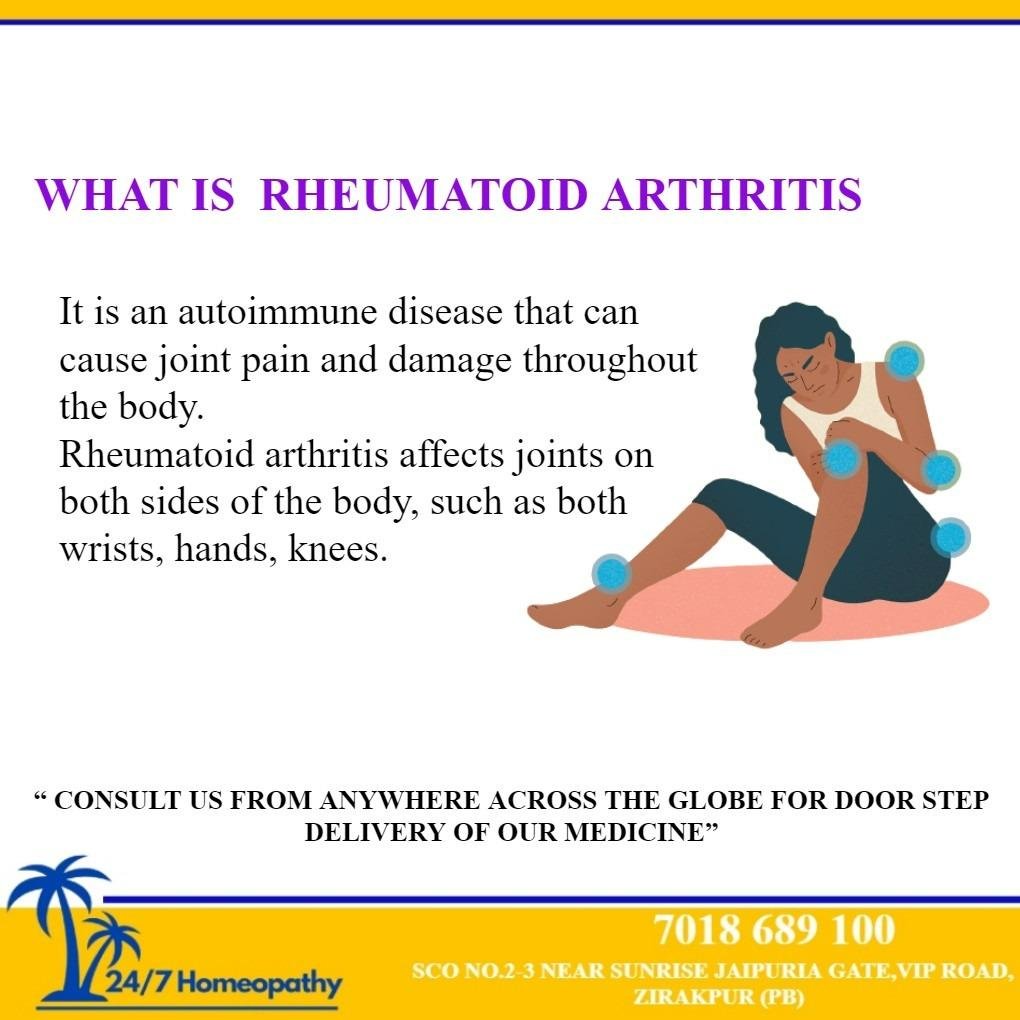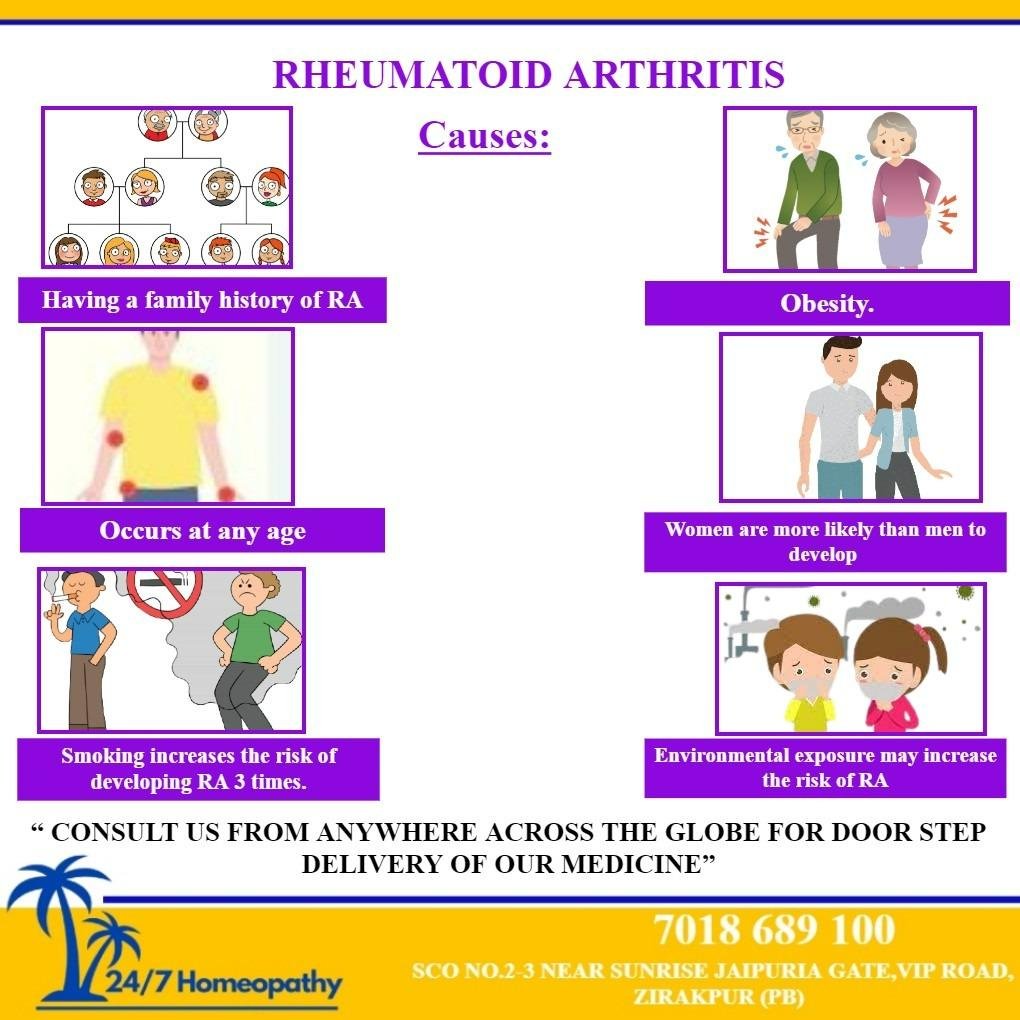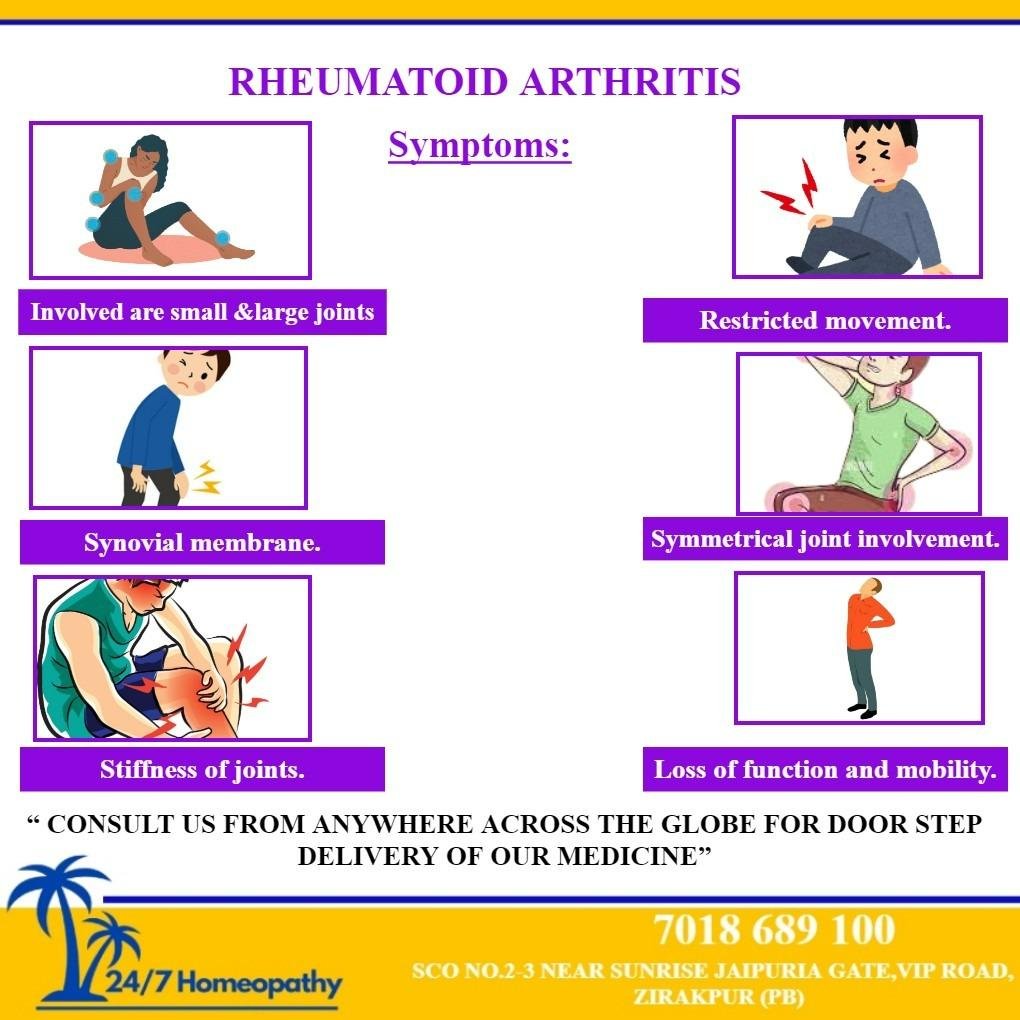Rheumatoid Arthritis
It is an autoimmune disease that can cause joint pain and damage throughout the body.
Rheumatoid arthritis affects joints on both sides of the body, such as both wrists, hands, knees. This symmetry helps to set it apart from other types of arthritis.
It is a long-term autoimmune disorder. Rheumatoid arthritis may also affect other parts of the body.
It is also a systemic disease and affects the whole body.
It occurs when a persons immune system mistakes the body’s healthy tissue for foreign invaders.
The immune system responds to inflammation that occurs in the target tissue. It results in warm, swollen, and painful joints. Pain and stiffness worse following rest. The immune system attacks the joints, which results in inflammation and thickening of the joint capsule and also affects the bone and cartilage.
The term rheumatoid arthritis comes from the Greek word meaning watery and inflamed joints.

Causes
- The exact cause of RA is not known Risk factors –
- Having a family history of RA
- Women are more likely than men to develop rheumatoid arthritis.
- Environmental exposure, Silica may increase the risk of RA.
- Obesity.
- Rheumatoid arthritis occurs at any age, but it is more
- commonly occurs in the middle ages.
- Smoking increases the risk of developing RA 3 times.

Rheumatoid Arthritis Symptoms
- Most commonly involved are small joints of hands, feet but larger joints like the shoulder, the knee also involved.
- Inflammation of the synovial membrane.
- Swollen, tender, warm, and stiffness of joints.
- Restricted movement.
- Symmetrical joint involvement.
- Loss of function and mobility.
- Weakness.
- Morning stiffness.
- Fatigue, fever, and loss of appetite.
- Difficulty to do some work.
Diagnosis - X-ray of hand, and feet. There may be no changes in the early stages. The X-ray may show osteopenia (low bone density) near the joint, and soft tissue swelling.
- X Blood test for – Rheumatoid factor.
- Anti citrullinated protein antibodies
- (ACPA)MRI
- CT-SCAN
- C-reactive protein.
- Diagnostic criteria
- Swelling present in one or more joints & Swelling present for at least 6 weeks, Blood test indicates the presence of RA

Prevention
- Quit smoking can improve RA symptoms.
- Maintain the patient’s quality of life and ability to function.
- Do exercise and yoga.
- Rest.
- Drink alcohol in moderation.
- Make sure you have enough calcium and vitamin D in your
diet. - Apply heat or cold – heat may relax your pain and painful
muscles. Cold may dull the sensation of pain. - Reduce stress by involving in meditation.
Complications
If not treated it can lead to further complications. Such as – - Osteoporosis.
- Dry eyes and mouth.
- Rheumatoid nodules.
- Heart problem – RA can increase the risk of blocked arteries or hardened arteries as well as inflammation of the sac that encloses the heart.
Rheumatoid Arthritis Homeopathic treatment - In homeopathy, many factors contribute to the selection of medicines like swelling, pain, weakness, etc. Our remedies are well selected by the team of doctors, improving the efficiency of the bones, muscular system.
- At 24/7Homeopathy clinic we believe in needlework treatment according to one’s mental and physical health.
- After taking the first dose of homeopathic medicine you will see the results like swelling and pain reduction, mental relaxation. There is no side effect of homeopathic medicines if you are taking medicine under the doctor’s s advice.
